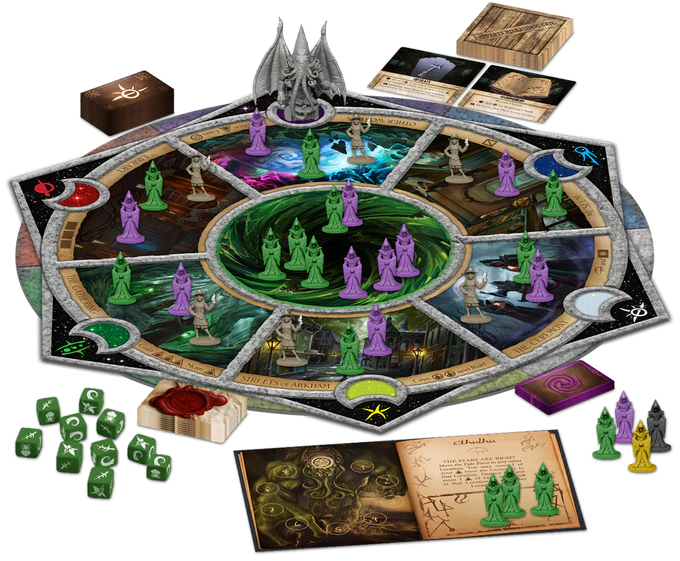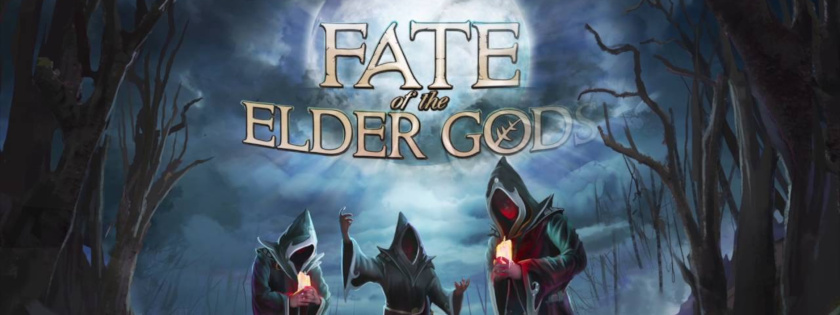In a role reversal, Fate of the Elder Gods offer players the chance to play in a Lovecraftian universe as a cult leader instead of the traditional investigators. Unfortunately, keeping the traditional serious tone of the genre even after the role reversal makes it a little tone-deaf for me.
Derivatives based on H.P.Lovecraft works and extended universe usually obey rigid conventions: the point of view is normal people drawing increasingly closer to a sanity-threatening occult conspiracy involving dark rituals, parallel dimensions, horrifying monsters, unspeakable horrors and eventually cruel gods from beyond the times intending on making a snack out of the Earth.
Countless novels, role playing and board games have been published following these conventions to the letter with a serious tone that is only rarely disturbed by the occasional parody. So it would seem fitting that Fate of the Elder Gods, a board game published by Fabled Nexus after a very successful Kickstarter campaign, would use the same tone.

However, in this game the settings is entirely different since participants play cult leaders intending on bringing about a terrestrial apocalypse involving their chosen Elder God. And while I have no personal problem with plucky investigators seriously taking on dark powers plotting an occult apocalypse, I feel like there already are enough cult leaders seriously trying to bring down the actual world (climate denial, fascism rise, ongoing fossil fuel extraction) without having to play one in a serious game.
The problem for me isn’t to play the bad guys. I’ve done so in many games with great pleasure (Dungeon Keeper, Evil Genius, Overlord…), but these games all had a comedic side that I realize was necessary for me to enjoy them. These cheeky self-reflective moments are crucial for me to discern self-awareness and confirm that you can’t seriously being a bad guy because that would be, huh, bad.
For me this is a recent and worrying trend in entertainment. I didn’t expect my earlier critic of Avenger: Infinity War to apply to other works of fiction, and now I realize it does to some extent to a growing body of villain-focused works lacking any self-reflection, like the recent Todd Phillips’ Joker movie or this board game.
It reminds me the following quote Antonio Gramsci wrote in his notebook while he was imprisoned by the Italian fascist regime in 1926:
The old world is dying, and the new world struggles to be born; now is the time of monsters.
Antonio Gramsci, prison notebook, 1929-1935
The parallels between our current times and the early 1900s in Europe keep accumulating and I can’t imagine anything good will come out of it.
Sure, despite its fictional premise, Fate of the Elder Gods on its own won’t precipitate the world into a chaos comparable to World War II, but its lack of self-reflection and practical cynicism during our times reminds me of another quote, still be Antonio Gramsci:
What comes to pass does so not so much because a few people want it to happen, as because the mass of citizens abdicate their responsibility and let things be.
Antonio Gramsci, Amadeo Bordiga, Angelo Tasca (1977). “Selections from political writings (1910-1920)”

